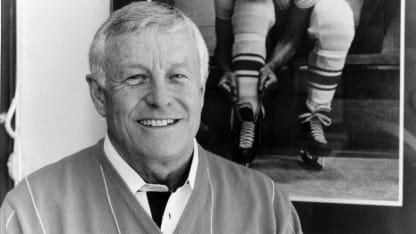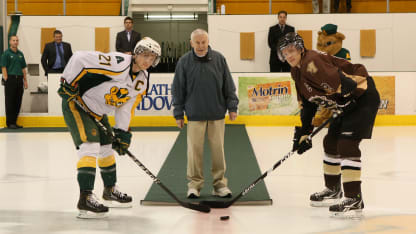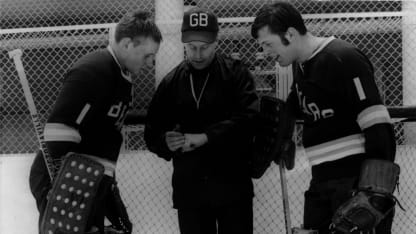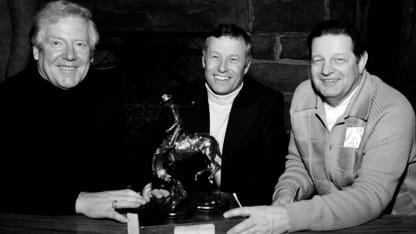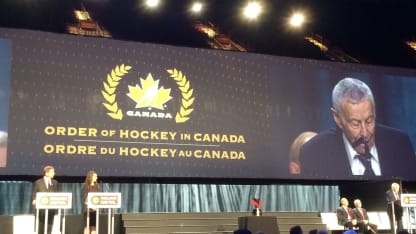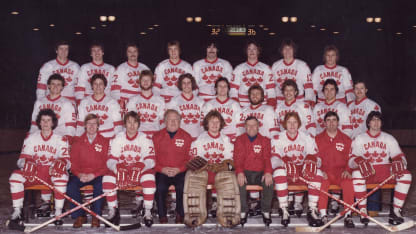"This is an award -- and Clare would be the first guy to tell you this -- for the guys who coach on a plastic chair with no office, just come to the rink and coach," Hitchcock said.
"This is a huge deal. What I mean by that is for all of the coaches who went to all of those summer clinics -- guys like myself, Barry, [Babcock], all of us, hundreds of us -- we thought the guys like Clare and Dave King and George Kingston and Tom Watt, they were icons to us. They opened their books and taught us how to coach. They were more than just university coaches, they were teachers. And for one of them to win this award, it just shows the recognition for every coach in every environment."
Babcock calls Drake the John Wooden of hockey. With UCLA, Wooden won 10 NCAA men's basketball championships in 12 seasons, including a record seven in a row from 1967-73. In the process, he developed a blueprint for life on and off the court called the Pyramid of Success, a ladder of achievement he preached to coaches and players long after his coaching career had ended.
Babcock sees a lot of similarities between Wooden and Drake.
"I'm a head coach today because of Clare Drake," Babcock said. "A lot of the tactical and strategical growth that Canadian hockey has enjoyed through the National Coaching Certification Program came from his contributions.
"The biggest thing for me is that Clare Drake, if he was coaching in the NCAA, he'd be John Wooden. That's who he is. And that's how many people he's impacted. That's the kind of integrity he had, that's the kid of moral fiber he had. Most of the players he coached ended up being good people -- good doctors, good lawyers -- not necessarily good pro players, but what an impact he had on the community. And for coaches who fell under his influence along the way -- Dave King or Hitch or whomever -- he helped us all.
"I was fortunate enough to meet John Wooden when I coached in Anaheim. I had the great privilege to work with and learn from Scotty Bowman with the (Detroit) Red Wings. Clare Drake is a leader and builder like both of them, but never got the same recognition because most of his work was done outside the public eye.
"It was time to change that."
Consider it changed.
"It's a great thing," Trotz said. "A great thing."
\\\\
Watt helped Drake coach the 1980 Canadian Olympic team.
